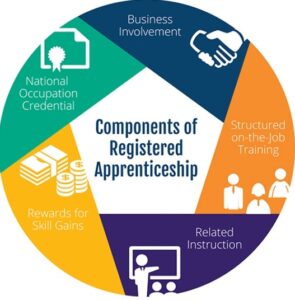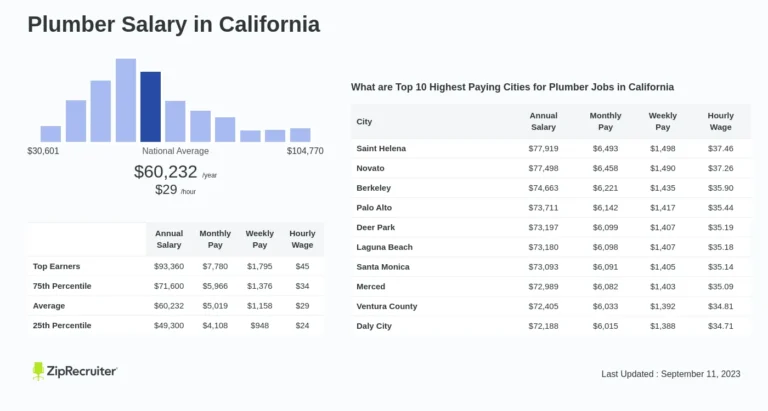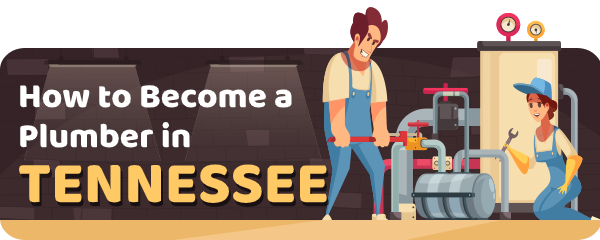How To become A Plumber?
Becoming a plumber is a great way to start a career that is both rewarding and in high demand. If you are looking to become a plumber, there are a few steps you will need to take to ensure you are properly trained and qualified. First, you will need to complete a plumber apprenticeship program. This program will provide you with the necessary knowledge and skill set to be successful in the plumbing profession. Once you have completed the apprenticeship program, you will need to obtain a plumbing license or certification. After you have your license or certification, you will need to find a job as a plumber. This may involve working in a plumbing company, or you can start your own business. Finally, you will need to keep up with the latest plumbing trends and technologies. With the right training, skills, and knowledge, you can become a successful plumber.
Understanding Plumbing
Plumbing is a complex field that requires a good understanding of the various systems that make up a plumbing system. Learning the basics of plumbing is essential for anyone looking to pursue a career in the industry. This includes understanding the principles of water pressure, the types of pipes used in plumbing, and the tools and materials used in installation and repair. It is also important to understand the different types of plumbing fixtures, such as faucets, toilets, and shower heads, and how they work together to provide water and waste removal. To become a successful plumber, it is important to have a thorough understanding of the industry and the fundamentals of plumbing.
Essential Skills and Qualifications
Becoming a plumber requires a range of essential skills and qualifications. It is important to understand the basics of plumbing and how to use the tools and materials associated with it. Plumbers must be able to read and interpret blueprints, diagrams, and schematics, and they must have knowledge of the local plumbing codes. Additionally, plumbing contractors must have strong problem-solving skills, an understanding of safety measures, and the ability to work with a variety of tools and materials.
To become a qualified plumber, one must obtain a high school diploma or equivalent and complete an apprenticeship program. The apprenticeship program must include a minimum of 144 hours of classroom instruction and 2000 hours of on-the-job training. Upon completion of the program, plumbers must then obtain a license from the local licensing authority. This license ensures that the plumber has the necessary knowledge of the plumbing codes and regulations to safely and effectively install and maintain plumbing systems.
Qualified plumbers must also possess certain personal qualities, such as strong customer service skills, excellent communication skills, and the ability to work well with others. Finally, plumbers must also be organized and detail-oriented in order to succeed in the profession. With the right combination of education, experience, and personal qualities, anyone can become a successful plumber.
Apprenticeship and Training Programs
Becoming a plumber requires a combination of hands-on experience and knowledge. One of the most effective ways to become a plumber is through apprenticeship programs and other forms of training. Apprenticeship programs are the most common way to gain the necessary experience to become a professional plumber. Apprenticeship programs provide a combination of hands-on experience and classroom instruction, allowing apprentices to learn the skills needed to work in the field. The programs typically last between two to five years, and apprentices must meet certain requirements in order to participate in the program. During the apprenticeship, apprentices are taught the basics of plumbing, such as safety regulations, installation, and repair. Once an apprenticeship is completed, plumbers must pass a licensing examination to become certified and employed in the field. Obtaining a certification also requires passing a criminal background check and other tests. Plumbers must also stay up to date with the latest plumbing codes and regulations. In addition to apprenticeship programs, plumbers can take advantage of online courses, vocational schools, and other forms of training. Online courses offer a convenient way to learn the basics of plumbing and can be completed from the comfort of your home. Vocational schools provide a comprehensive education in plumbing and help students build the necessary experience to become a professional plumber. With the right training and experience, anyone can become a plumber and make a living in the industry.

Licensing and Certification Requirements
Are you interested in becoming a professional plumber? It’s a career that requires a high level of skill, and to be successful you’ll need to meet certain licensing and certification requirements. Depending on where you live, these may vary. Generally, though, you’ll need to be 18 years old, complete a formal apprenticeship program, and pass a licensing exam. Once you’re licensed, you’ll need to take continuing education courses to stay up to date with industry standards.
To start your journey to becoming a plumber, you’ll need to find a plumbing apprenticeship program. These can be offered through trade schools, union organizations, or professional organizations. It’s important to make sure the program you choose is approved by your state. Once you’ve completed your apprenticeship, you’ll be ready to take the licensing exam.
The licensing exam will test your knowledge of the technical aspects of plumbing, such as pipe installation, water systems, and code requirements. You’ll also need to demonstrate your understanding of safety protocols and regulations. Once you’ve passed the exam, you’ll be ready to start your career as a licensed plumber.
To remain licensed, you’ll need to take continuing education courses to stay up to date with industry standards. These courses may cover topics such as emerging technologies, plumbing codes, and safety protocols. By taking continuing education courses, you’ll ensure that you stay informed and are able to provide your clients with the best possible service.
Becoming a plumber is a rewarding career choice and requires dedication and commitment. By meeting the licensing and certification requirements, you’ll be able to start your career with confidence and be well-equipped to serve your clients.
Finding Employment Opportunities
If you’ve decided that plumbing is the career for you, the next step is to find a job in the field. As a plumber, you can find work in the construction industry, in a plumbing service or in a retail store that sells plumbing supplies. Depending on where you look, you may be able to find a full-time job or contract work.
To begin your search for a job, you’ll want to utilize a variety of job search websites to quickly and easily find employment opportunities. Networking is also an important part of the job search process. By connecting with other plumbers in your area, you may be able to find out about job openings and opportunities. You can also reach out to plumbing firms directly by checking their websites and job postings.
In addition, online job postings often list the necessary qualifications and educational requirements for the job, so be sure to review these carefully to ensure that you meet the qualifications. Once you have found a job that you’re interested in, you’ll need to submit an application and a resume. With a well-crafted resume and the right skills, you can easily find a job in the plumbing field.
Building a Successful Career
A plumbing career can be an incredibly lucrative and rewarding profession. With the right training and experience, you can become a highly respected and successful plumber. Becoming a plumber involves more than just having the right skills; it also means having the right attitude to succeed. In this article, we’ll discuss the key skills and steps you need to take in order to become a professional plumber.
It’s important to get the right education and training in order to become a successful plumber. Many plumbers begin their career by completing a plumbing apprenticeship. This type of program provides students with hands-on experience in the plumbing field, as well as the technical knowledge they need to perform the job. You can also obtain a plumbing certification or degree from a vocational school or community college.
In addition to the proper education and training, you will need to become familiar with the latest plumbing technologies. Plumbing is constantly evolving, and it’s important to stay up-to-date on the latest developments in the field. You will also need to have a good understanding of building codes and safety regulations.
To become a successful plumber, you should also have good customer service skills. You will be working with customers and other professionals on a regular basis, so it’s important to be able to communicate clearly and effectively. Being able to problem-solve quickly and efficiently is also key.
Finally, you should have a strong work ethic. Plumbing jobs can be physically demanding and require a lot of hard work. You should be willing to put in the time and effort necessary to get the job done right.
By taking the time to obtain the necessary education and training, as well as having the right attitude and work ethic, you can become a successful plumber. With the right dedication and commitment, you can build a lucrative and rewarding career in the plumbing industry.
FAQs About the How To become A Plumber?
1. What qualifications do I need to become a plumber?
Answer: You will need to complete a plumber apprenticeship program, which typically includes a combination of classroom instruction and hands-on training. You may also need to obtain a state plumbing license.
2. How long does it take to become a plumber?
Answer: The duration of a plumber apprenticeship program can vary, but they typically range from three to five years.
3. How much do plumbers make?
Answer: According to the Bureau of Labor Statistics, the median pay for plumbers was $51,450 per year (May 2019).
Conclusion
Becoming a plumber is a great way to start a career in the trades, and with the right training and experience, you can become a licensed plumber and open up a whole world of opportunities. With the right attitude and dedication, you can become a highly sought-after plumber in no time. By taking classes, acquiring experience, and taking the necessary licensing exam, you can become a qualified plumber and start your own business.








